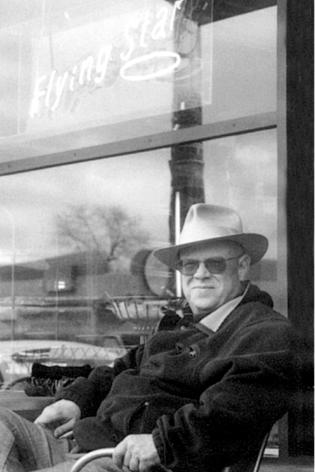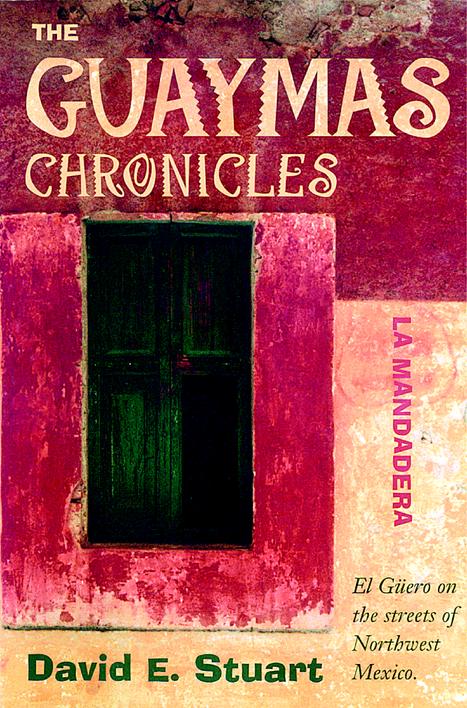I believe The Guaymas Chronicles: La Mandadera is the story David E. Stuart was meant to tell.
Lindsay Lancaster, the events coordinator at Bookworks, raved to me about this book. She's literally nuts about it. (Well, not literally, but very close.) When a bookish person like Lindsay raves so vociferously about a new release, I always take heed. This time, I'm very glad I did.
For starters, this is just an immensely entertaining memoir. For my tastes, it's easily as accomplished as Tobias Wolff's This Boy's Life, which in my opinion is at the very pinnacle of contemporary memoirs.
Stuart—a professor of anthropology at UNM—has an incredible story to tell. Equally astonishing is that he tells it so bloody well. His sense of pacing, structure and detail come together in such a way that the book sucks you in and won't let you out until the very last page.
The book begins with Stuart sustaining some serious bodily injuries while engaged in anthropological research in the remote mountains of Ecuador. The local doctors do the best they can to patch him up with their primitive supplies and equipment, but Stuart is eager to get the hell out of Ecuador. Something about the country doesn't sit well with him. So he travels to the Mexican state of Sonora where his fiancée Iliana is waiting for him.
When he gets to the impoverished little town of Empalme, his relationship with Iliana crumbles almost immediately. Heartbroken, Stuart moves on to his old hangout in Guaymas, a neighboring town situated on the Sea of Cortez.
It's the early '70s. Stuart doesn't fit in with the drugged-out hippies back home in the States. He's in no hurry to head back to UNM to finish his graduate degree in anthropology either. So he's plenty content to float in limbo for a while.
Throughout the book, Stuart hints that he's always had trouble fitting in, but in Guaymas, finally, he finds a place where he's totally comfortable. He makes lots of local friends. He finds a way to support himself by smuggling contraband—fans, calculators, radios—across the border to Mexicans eager for cheap American consumer goods. On several occasions, he helps his fellow countrymen navigate the mysteries of local culture.
He dances. He mingles with prostitutes. He makes a life for himself in an alien culture and feels at home for the first time in his life.
Most importantly, he meets an obnoxious, foul-mouthed little street girl named Lupita. It's Stuart's relationship with this filthy 10-year-old urchin that forms the heart of this incredible book. Lupita becomes his mandadera—his helper—and she assists him in various business ventures and other dealings in Guaymas. I won't spoil the story by giving too many details, but suffice it to say that The Guaymas Chronicles is sexy, funny, fascinating and cute as hell. In the end, it will also break your heart.
I didn't realize David E. Stuart was the same David E. Stuart who authored Anasazi America, a wonderful book I reviewed in these pages a couple years ago. Anasazi America is an awesome book, filled with lots of incredible detail and a timely thesis drawing apt connections between the fall of New Mexico's Chaco civilization and factors threatening contemporary America. Yet I also recall it being somewhat dry in parts. No one could describe The Guaymas Chronicles as dry. This book epitomizes the term “page turner.”
I have nothing against UNM Press. I love UNM Press. Our university's publisher provides an enormous boost to the intellectual life of New Mexicans. At the same time, though, I have to say that The Guaymas Chronicles could easily succeed outside the somewhat narrow boundaries of academic publishing. This book could achieve a huge amount of commercial success. Actually, it's not hard to imagine it translating very well to the screen.
Long story short: I loved it.
Yet since I'm obligated to say something negative about everything I review, here it is: One weird thing about The Guaymas Chronicles is that Stuart repeatedly says that the locals in Guaymas refer to him as El Güero, as if this were a personal nickname they'd given specifically to him. As far as I know—and I've been called it often enough that I should know—“güero” is a generic term for all white guys.
Stuart mentions in his introductory author's note that he's “novelized” his memoir in some significant ways. That could account for this small discrepancy. In the end, though, I don't really care how much of this book is fiction and how much of it is fact. This book ripped my heart out and slapped it on a platter. There's a famous African proverb, “all stories are true.” In that spirit, David E. Stuart's The Guaymas Chronicles is as true as anything I've read in a very long time.










